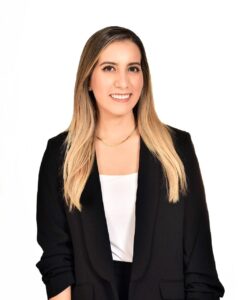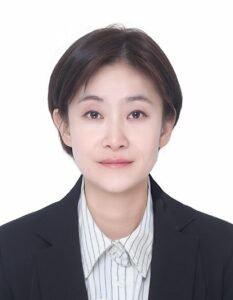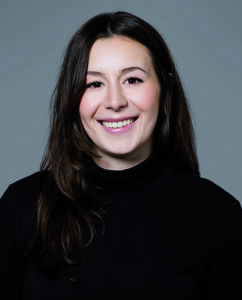Mariela Salcedo Arizaga from Mexico, Ji-Hyun Lee from South Korea, and Lisa Mueller from Germany may have grown up worlds apart, but all three faced the same challenge a few years ago: the world was changing faster than their legal education had prepared them for.
“Globalisation has created new industries, including legal tech. As a result, staying updated on domestic regulations in multiple countries has become essential,” says Salcedo.
This eventually led all of them to Boston University School of Law’s LLM in American Law. “BU stood out for its academic excellence and the opportunity to live in Boston — a vibrant, intellectually rich city — for an entire year. It was the perfect environment to grow both personally and professionally,” Salcedo adds.
Faculty here are invested in your growth. “I appreciate how approachable they are – they encourage open discussion and critical thinking,” says Mueller.
BU Law’s LLM is fully flexible and allows you to focus on different subjects within American Law such as Intellectual Property, Taxation and International Business Practice. Courses train you to analyse legal issues and advocate with confidence. As Lee explains, “Introduction to American Law helped me appreciate the importance of legal culture and context when interpreting or applying foreign legal concepts — a skill that continues to inform my work in policy development today.”
Read on to learn how else the LLM in American Law has helped them forge successful careers across multiple countries.

The LLM gave Salcedo a foundation in international mergers and acquisitions (M&A), corporate finance, contracts, and compliance. Source: Boston University
Mariela Salcedo Arizaga
Salcedo, a Mexican lawyer with US legal training, has been busy building her career since graduating.
In the corporate world, she is working as Legal Counsel for the Americas Export division at Heineken, a role that spans more than 30 markets and while it isn’t always easy, BU Law has given her the expertise to think strategically in every situation. In the Corporations course, for instance, she gained “a deeper understanding of the strategic dynamics behind major corporate disputes,” which helps her review contracts and advise on international transactions. “It allows me to anticipate legal risks, understand the motivations behind corporate decisions, and engage more effectively with colleagues trained in common law systems,” she notes.
The classroom experience at BU Law—ranked eighth best in the nation by The Princeton Review—shaped how Salcedo approaches teaching today. As an International Contracts Professor at the Universidad de Monterrey, she applies the same practical, case-driven methods she experienced as a BU Law student, inviting guest speakers and using real-world examples to connect theory with practice. “In both worlds, BU Law continues to be a source of inspiration and distinction, helping me bridge theory and practice across borders,” she says.

Besides legal writing and analytical precision, learning alongside classmates from different backgrounds taught Lee to listen better and work collaboratively. Source: Boston University
Ji-Hyun Lee
For Lee, studying at BU Law was a turning point. “Intellectual property (IP) doesn’t exist in isolation — technology, innovation, and trade are inherently global,” she says. “Studying law internationally helps you spot global trends, communicate with foreign stakeholders, and create policies that work internationally and at home. My experience at BU Law gave me precisely that perspective.”
Academically, she found BU Law both challenging and motivating. “The rigorous assignments taught me how to communicate complex legal arguments clearly and persuasively,” she says.
Those skills now help her draft national policies and engage with international partners as Intellectual Property Lead at South Korea’s Ministry of Trade, Industry and Energy. For example, learning how the US handles patents and licensing helped her design policies that protect inventors while promoting collaboration.
Meanwhile, her familiarity with US fair use principles and antitrust considerations helped her explain Korea’s position more confidently. “It’s taught me to translate legal concepts between systems — an essential skill when advising on trade matters or participating in international discussions such as those at the World Trade Organisation (WTO) or World Intellectual Property Organisation (WIPO).”

Mueller has passed the New York Bar as well, showing she can work confidently in both US and German legal systems. Source: Boston University
Lisa Mueller
After wrapping up her legal studies in Germany, Mueller wanted to explore the US legal system and international deal structures. “US-trained lawyers are often more transaction-oriented and pragmatic in their approach, which helps in finding creative solutions,” she says. “This combination of precision and commercial insights adds significant value to international law firms.”
At BU Law, she was able to compare the two systems in depth. “For example, in US law, case law and judicial reasoning play a much stronger role, while the German system is based more on codified principles,” she explains. “Discussing these differences in class has helped me understand why lawyers in each system approach problems the way they do.”
Mueller found the transactional coursework directly applicable to her career as a law associate in Munich today too. “The emphasis on practical skills, such as drafting, negotiation, and understanding business implications, in courses like M&A, Private Equity, and Transaction Simulation, has been incredibly useful in private equity and M&A matters,” she says. “They also help me understand the legal reasoning from a more economic and practical standpoint.”











